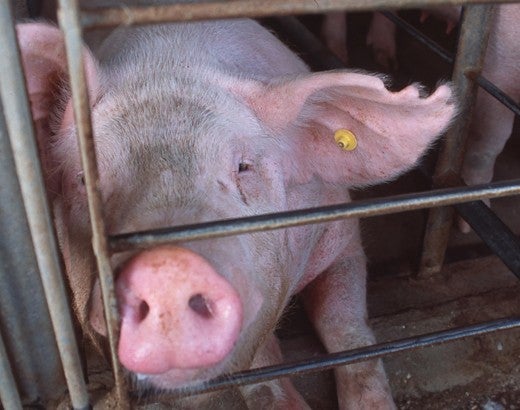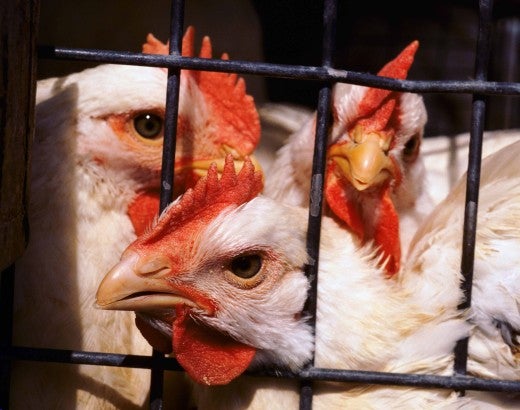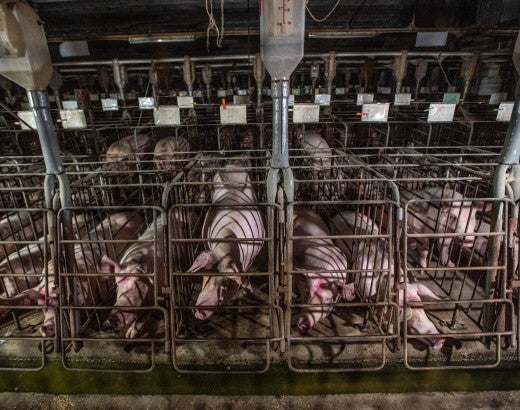We are finally seeing some breakthrough changes in how society views farm animals and, therefore, how they are treated. Right now, in the U.S., we're in a pitched battle to defend Proposition 12 and similar legislation to protect animals raised for food from proposed undermining language in the Farm Bill, a legislative package the U.S. Congress passes every few years to govern agricultural and food programs. With so much progress for farm animals hanging in the balance, it was great to see our colleagues in Great Britain rejoice last week when the UK Parliament finally banned the live export of farmed animals for fattening and slaughter.
For more than a century, farm animals have been subjected to long and grueling sea voyages, and animal advocates have been campaigning against this practice for more than 50 years. Transport-related suffering occasionally makes the news when a vessel holding thousands of animals becomes stranded at sea. These hellish journeys, known as “live export” and which also now occur by air and road, can last for days. During this time, animals suffer from fear and exhaustion, and they routinely sustain injuries. Once they reach their destinations, they are slaughtered.
This landmark legislation means that cows, sheep, goats, pigs and horses from Britain will no longer have to endure these terrible voyages. We pay enormous tribute to our friends at Compassion in World Farming and the RSPCA who have led the charge against live exports since the 1970s, and to the countless activists and campaigners who have staged protests, signed and shared petitions, and contacted the government. We are proud of the role Humane Society International/UK’s office and dedicated supporters have played in holding their government accountable on its commitment to a ban. (Due to trade agreements made after Brexit, Parliament did not include Northern Ireland in the legislation.)
Stopping animal cruelty so deeply entrenched in common practices takes both stamina and courage. The fight against live exports started in 1890 when British MP Samuel Plimsoll petitioned Parliament for an end to the overcrowded and deplorable conditions in the transatlantic live cattle trade, in which animals were often fatally injured and even thrown overboard during violent storms. While that trade ended around World War I, Britain’s live animal export trade to Europe and the Middle East grew rapidly from the 1960s, peaking in the early 1990s, when one million animals were exported annually. The majority were calves sent as “by-products” from the British dairy industry, to be fattened and killed for veal in continental Europe.




